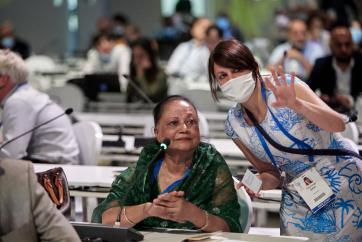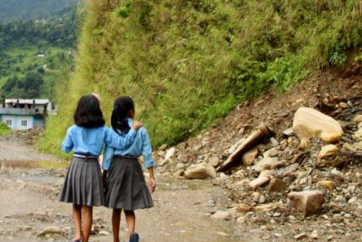|
🗓️ 3-11 SEPTEMBER 2021 |
Register for in-personRegister for virtual |
Harnessing nature-based climate mitigation and adaptation efforts is an essential strategy to overcome the challenges posed by a changing climate. The full potential of the world’s natural carbon sinks and reservoirs that can contribute to a climate-resilient and biodiversity-rich future has yet to be unlocked. This will require strengthening institutional and governance capacity for ecosystem planning and management, as landscapes transform and adapt to climate change. How can healthy ecosystems provide effective solutions for climate change mitigation and adaptation? What is the role of protected and conserved areas to meet the goals set out in the Paris Agreement on Climate Change? Policy and decision-making may require trade-offs to optimise the benefits for biodiversity, climate change and other relevant sectors. How do we ensure that synergies are found and negative trade-offs avoided?
Reducing the impacts of environmental hazards (extreme weather events, floods, etc.) is one of the most critical ways in which to strengthen the resilience of affected communities. Successfully mitigating the risks and consequences helps avoid an environmental hazard becoming a disaster and requires enhanced policy frameworks and institutional capacity. What are the most effective community-based solutions to ensure the inclusion of the most vulnerable? What kind of natural and built infrastructure best reduces exposure to natural hazards and increases socio-economic resilience of people and communities by sustaining local livelihoods?
Related content
Related sessions
| Date | Room | Title | Features | Session type | Themes | Favourite |
|---|---|---|---|---|---|---|
|
Thursday 09 Sep 10:30 - 11:15 |
H3 - Pavillon France | L’intégration des espaces naturels côtiers dans les stratégies d’adaptation aux impacts des changements climatiques |
en, fr |
Exhibition Event |
Climate change |
|
| Achieving forest landscape restoration at scale – lessons from China for ramping up the global response |
en |
Speaker Pitch |
Climate change Landscapes |
|||
|
Monday 06 Sep 14:00 - 15:30 |
H8 - 8 Pyrénées | Judges and the Environment: Can Environmental Law Deliver? Judicial Education in Environmental Law |
en |
Thematic Stream Session |
Climate change Rights and governance |
|
|
Monday 06 Sep 15:30 - 16:15 |
H3 - OFB – Office français de la biodiversité | Dans quelle mesure l’érosion de la biodiversité constitue-t-elle un risque pour le système financier français ? |
fr |
Exhibition Event |
Climate change Economic and financial systems |
|
|
Monday 06 Sep 15:30 - 16:30 |
H3 - Reverse the Red Pavilion | Reverse the Red - Ecocide and wildlife crime law reforms save species! |
en |
Social and Cultural event |
Climate change Rights and governance |





